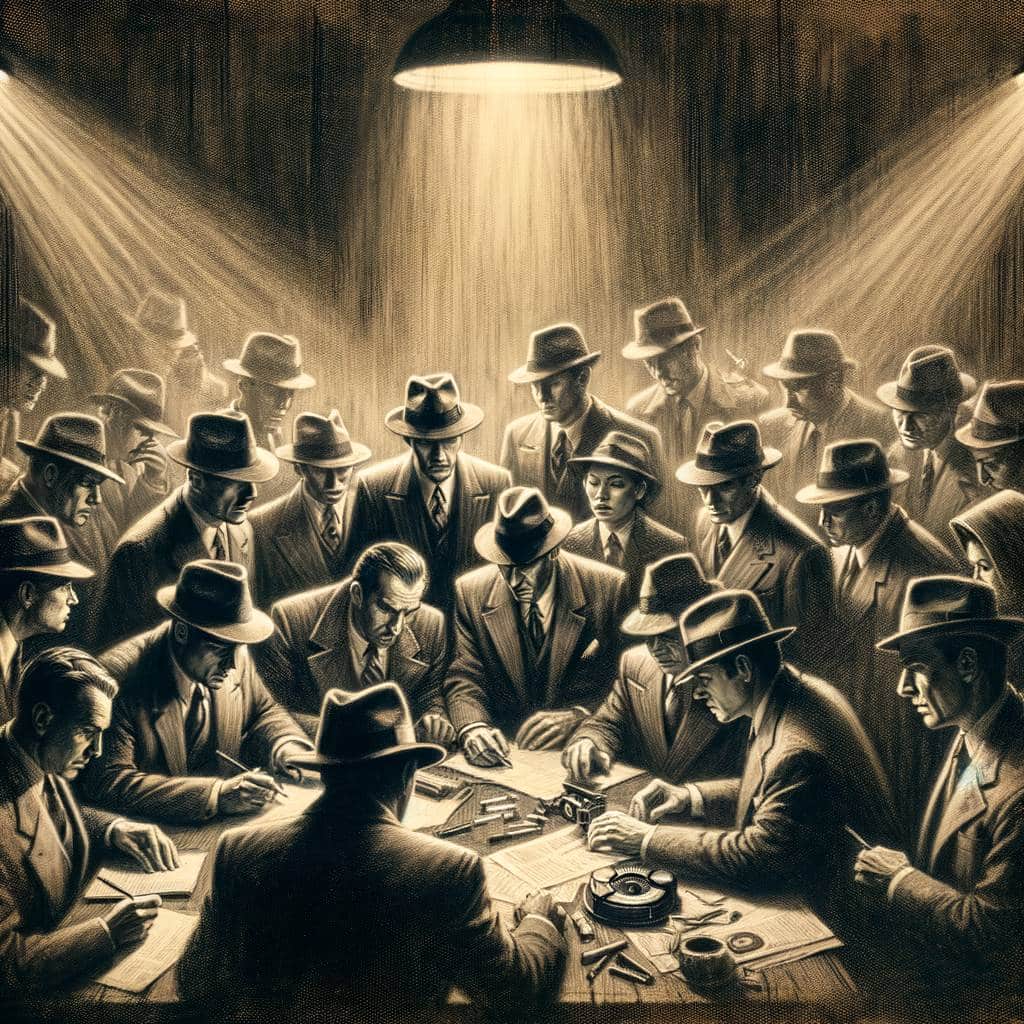Okay, deep breath, let's get this over with. In the grand act of digital self-sabotage, we've littered this site with cookies. Yep, we did that. Why? So your highness can have a 'premium' experience or whatever. These traitorous cookies hide in your browser, eagerly waiting to welcome you back like a guilty dog that's just chewed your favorite shoe. And, if that's not enough, they also tattle on which parts of our sad little corner of the web you obsess over. Feels dirty, doesn't it?
From Vice to Spies: How Joseph Cox’s New Book Uncovers the FBI’s Wildest Sting Operation
On Decoder, Joseph Cox discusses his new book, Dark Wire: The Incredible True Story of the Largest Sting Operation Ever. Discover how the FBI ran a secure phone service to spy on criminals worldwide. Tune in for a wild ride through privacy, security, and tech’s…

Hot Take:
When life gives you lemons, make lemonade. When the FBI gives you a phone, double-check if the lemonade comes with a wiretap! Joseph Cox’s new book, “Dark Wire,” takes us on a wild ride through the FBI’s undercover tech startup, Anom. Spoiler alert: It’s a sting operation so juicy, you’ll need a napkin.
Key Points:
- Joseph Cox co-founded 404 Media after the collapse of Vice’s tech vertical, Motherboard.
- Cox’s new book, “Dark Wire,” chronicles the FBI’s undercover operation, Anom.
- Criminals used secured phones to evade law enforcement, leading to niche tech markets.
- The FBI ran Anom to spy on criminals by masquerading as a secure phone service provider.
- The operation was shut down after three years because it was too effective.
Need to know more?
The Birth of 404 Media
When Vice’s tech vertical, Motherboard, imploded last year, Joseph Cox and three other journalists didn’t just sit around twiddling their thumbs. Instead, they turned their tech-savvy brains towards creating 404 Media, a new site that’s now making waves in the cybersecurity world. It’s like a phoenix rising from the ashes, but with more Wi-Fi and less mythological symbolism.
The Ultimate Sting Operation
If you thought running a startup was hard, try running one as an undercover FBI operation. In “Dark Wire,” Cox lays out how the FBI infiltrated the criminal world by running a secure phone service called Anom. Drug traffickers and other lawbreakers thought they had found a safe haven for their illicit conversations. Little did they know, the FBI was eavesdropping on their every word. It’s like “Undercover Boss,” but with more jail time and fewer heartwarming moments.
Criminals and Their Secure Phones
Early on, criminals needed specialized, secured phones to keep their activities under the radar. This demand led to a niche market of encrypted devices, making it feel like the Wild West with smartphones instead of six-shooters. Joseph Cox has reported extensively on this shadowy marketplace, and now he brings us an insider look into how the FBI not only infiltrated but also ran one of these companies. Imagine a spy novel but with Silicon Valley headaches like cloud services and customer complaints.
Anom: The FBI’s Tech Startup
Anom wasn’t just a side project; it became a fully operational tech company. That means the FBI had to juggle typical startup challenges like manufacturing issues, shipping delays, and customer service gripes. For three years, Anom provided law enforcement agencies around the globe with a golden ticket into the criminal underworld. The operation was so successful, they had to shut it down before it became the Amazon of spying.
The Privacy vs. Security Dance
While Anom’s story is thrilling, it also brings up crucial issues about the balance between privacy and security. The same encrypted tools that protect whistleblowers and dissenters can also shield nefarious activities. It’s like trying to enjoy a double-edged sword without getting cut. In the podcast episode, Cox and the host dive deep into this ongoing tug-of-war, making it clear that tech companies and governments are forever tiptoeing on this tightrope.
The Shift to Secure Apps
Now that specialized hardware is falling out of favor, criminals are moving their shady operations to encrypted apps like Signal. This shift raises new questions about how law enforcement can keep up. It’s like playing Whac-A-Mole, but the moles are savvy criminals and the mallet is outdated legislation. As Cox’s book suggests, the game of cat and mouse between criminals and law enforcement is far from over.
So, Should You Read “Dark Wire”?
Absolutely. If you have any interest in cybersecurity, undercover operations, or just love a good caper, Joseph Cox’s “Dark Wire” is a must-read. It’s a real-life thriller that makes “Mission: Impossible” look like a walk in the park. Plus, you’ll get a deeper understanding of the intricate dance between privacy and security that affects us all. Just remember, next time you get a new phone, maybe don’t accept it from a stranger who looks like they could be an extra in a “Law & Order” episode.
In conclusion

